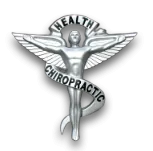At our Alexandria chiropractic clinic, patient care is about more than providing spinal adjustments to patients with neck pain and back pain. Instead, it's about a whole approach to living well. Our chiropractor believes in the body's ability to heal itself from many ailments so long as it is given the necessary tools to do so. That's why when you visit our office you'll receive a full evaluation of your daily sleep, exercise, work and eating habits. We'll then offer you a customized plan for wellness that may include nutritional supplements and diet changes in addition to regular spinal adjustments.
Good nutrition and healthy diet are crucial to wellness. Combining a healthy lifestyle with the care of a chiropractor goes a long way to prevent future health problems and address existing ones. Good nutrition can also make bodily adjustments and other musculoskeletal care more effective. For example, calcium is vital to bone density, and bodies low on calcium may produce brittle bones, which in turn become prone to physical injury or less responsive to chiropractic adjustments.
Nutrition and Pain Relief
While some pain in the body is the result of subluxations and easily relieved with an adjustment, other pains may be caused by more complex problems. In fact, researchers have linked multiple diseases with deficiencies of vital nutrients such as Vitamin D and omega-3 fatty acids. By improving your nutrition, you may prevent the onset of future diseases and you may experience pain relief from chronic problems associated with poor nutrition.
Ways to improve your nutrition include eating a diet with more lean meats, fruits, vegetables and whole grains, as well as avoiding processed foods. Many people - particularly those suffering from Celiac disease - also report improved health by incorporating a gluten-free diet into their lives. Gluten is a compound found in carbohydrate-containing foods such as bread and pasta.
By removing gluten-containing foods from your diet, you may see improvements in digestion and weight management. However, if you choose to follow a gluten-free diet, it's important to supplement your diet with the nutrients commonly found in gluten-containing foods, such as iron, thiamin, calcium, riboflavin, folate and fiber.
Have your own nutritional habits helped or caused problems for you?
6285 Franconia Rd
Alexandria, VA 22310
Alexandria Chiropractic Nutrition Tips
posted: May 22, 2020.
